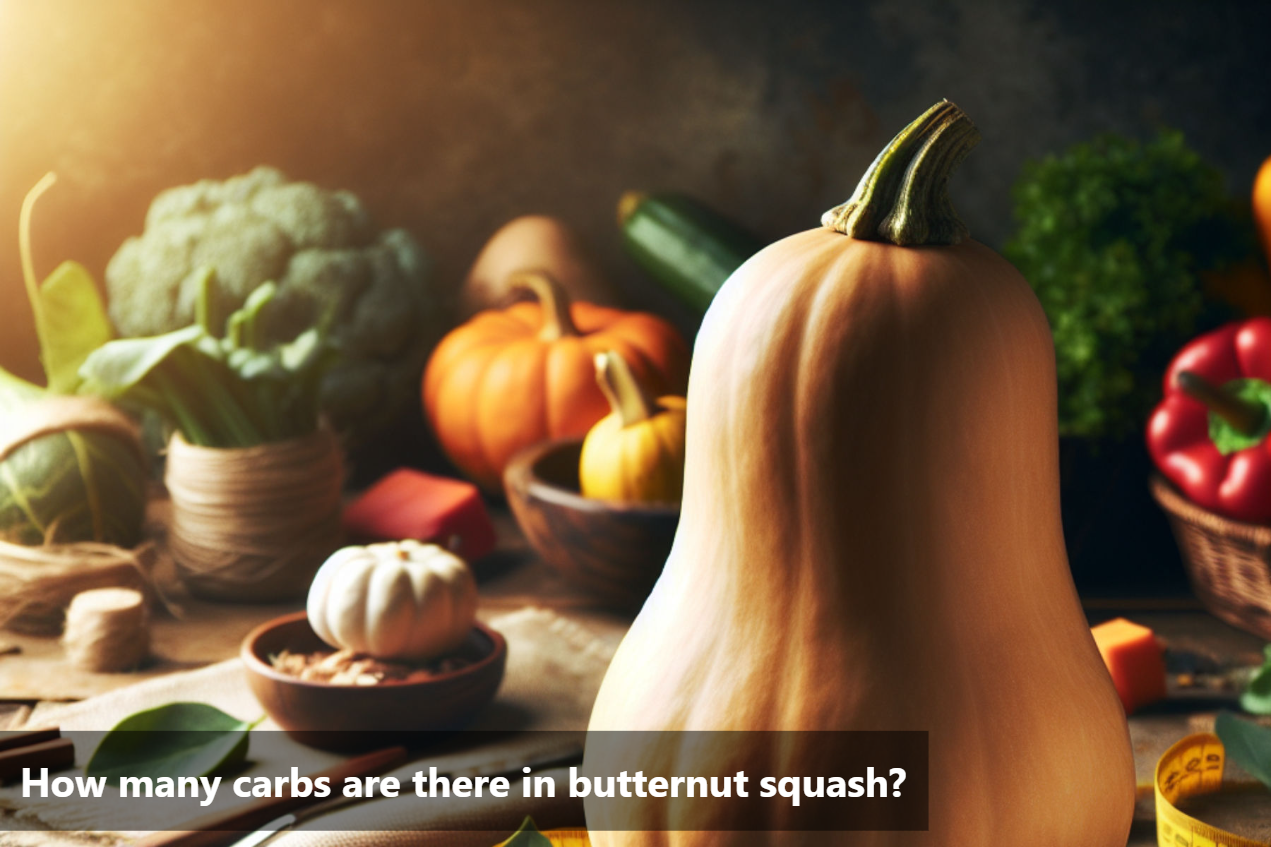
How many carbs are there in butternut squash?
Butternut squash has gained recognition as a nourishing vegetable choice, particularly for health-conscious individuals. Its reputation stems from being not only delicious but also packed with essential nutrients. One aspect that sets butternut squash apart is its carbohydrate content, a crucial consideration for those adhering to specific dietary regimens.
For individuals closely monitoring their carb intake, understanding the carbohydrate composition of butternut squash is essential. While it may not be as low in carbs as certain leafy greens, its moderate carb content still makes it a viable option for many diets. The implications of incorporating butternut squash into different eating plans can vary, making it a versatile choice for individuals with diverse nutritional needs.
Exploring the role of butternut squash in providing a substantial source of carbohydrates can offer valuable insights for those seeking a well-rounded diet. By delving into the significance of this vegetable's carbohydrate content, individuals can make informed choices about integrating it into their meals.

Nutritional Profile of Butternut Squash
One cup (205 grams) of cooked butternut squash provides:
Calories |
82 |
Carbs |
22 grams |
Protein |
2 grams |
Fiber |
7 grams |
Vitamin A |
457% of the RDI |
Vitamin C |
52% of the RDI |
Vitamin E |
13% of the RDI |
Thiamine (B1) |
10% of the RDI |
Niacin (B3) |
10% of the RDI |
Pyridoxine (B6) |
13% of the RDI |
Folate (B9) |
10% of the RDI |
Magnesium |
15% of the RDI |
Potassium |
17% of the RDI |
Manganese |
18% of the RDI |
Factors impacting Carb content
Ripeness |
Riper squash tends to have higher sugar content, which can result in slightly higher carbohydrate levels. |
Growing Conditions |
Ideal growing conditions may lead to sweeter squash with slightly higher carbohydrate content. |
Variety |
Some varieties may naturally contain more sugars, resulting in higher carbohydrate content, while others may be lower in carbohydrates. |
Harvesting Time |
Squash harvested earlier in the season may have lower sugar content and therefore lower carbohydrate levels. |
Storage Conditions |
Storing squash in cool, dark conditions can help preserve its sugar content, potentially resulting in higher carbohydrate levels over time. |
Cooking Method |
For example, roasting or baking butternut squash may cause some of its natural sugars to caramelize, slightly increasing its carbohydrate levels compared to boiling or steaming. |
Portion Size |
Larger servings will naturally contain more carbohydrates compared to smaller servings. |
Incorporating Butternut Squash into a Carb-Conscious Diet
When it comes to maintaining a carb-conscious diet, incorporating butternut squash can add both flavor and nutrition to your meals. Here are some practical tips and recipe ideas to help you enjoy this versatile vegetable while managing your carb intake effectively.
Roasted Butternut Squash: One delicious way to enjoy butternut squash is by roasting it with a drizzle of olive oil and a sprinkle of your favorite herbs. The natural sweetness of the squash caramelizes in the oven, creating a delectable side dish or snack.
Butternut Squash Noodles: Swap out traditional pasta for butternut squash noodles as a low-carb alternative. Use a spiralizer to create long, noodle-like strands and toss them with your preferred sauce for a satisfying meal.
Butternut Squash Soup: Blend roasted butternut squash with vegetable broth and a touch of cream for a creamy and comforting soup. This warm and hearty dish is perfect for cozy evenings.
-
Stuffed Butternut Squash: Fill halved butternut squash with a mixture of quinoa, vegetables, and herbs for a nutrient-dense meal that is as visually appealing as it is delicious.
When including butternut squash in your low-carb or keto diet, remember to practice portion control to manage your carb intake effectively while reaping the nutritional benefits this vegetable has to offer. Experiment with different recipes and enjoy the versatility of butternut squash in your carb-conscious meals.

Navigating Butternut Squash Carbs
Butternut squash boasts a moderate carb content, making it a versatile and nutritious vegetable option that can be incorporated into various dietary plans. Whether you are carb-conscious or simply looking to enhance your overall nutrition, butternut squash can be a beneficial addition to your meals.
Considering your individual carbohydrate needs is crucial when deciding to include butternut squash in your diet. By being mindful of portion sizes and meal compositions, you can optimize the nutritional benefits of this vegetable while aligning with your dietary preferences. Remember, balance is key when it comes to carbohydrate intake, and butternut squash can be a flavorful and wholesome component of a well-rounded eating plan.Make informed decisions that suit your carb requirements and taste preferences to enjoy the benefits of this nutrient-rich vegetable.
FAQs
-
Is butternut squash a low-carb vegetable?
While butternut squash is not considered a low-carb vegetable, it can still be enjoyed in moderation as part of a balanced diet.
-
Can butternut squash be included in a keto diet?
Due to its slightly higher carb content, butternut squash is not typically included in strict keto diets. However, it can fit into a low-carb diet plan.
-
How do the carbs in butternut squash compare to other vegetables?
Butternut squash falls in the middle range in terms of carbohydrates compared to other vegetables, so portion size is key for those watching their carb intake.
This Blog post is an initiative by Lo! Foods, to provide accurate and Nutritionist / Doctor approved information related to Health. Lo! Foods is India's leading brand for Everyday Functional Foods. Foods designed for specific Health conditions or Needs. Lo! Foods also runs India's largest range of Low Carb Healthy Cloud Kitchens, under the brand names of Lo!, ProteinChef, ATH (All Things Healthy) and DiabeSmart.











Leave a comment
Your email address will not be published.